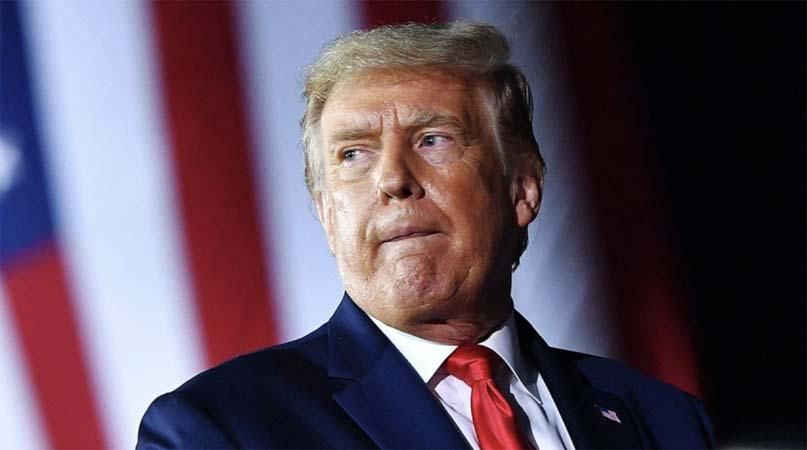In a column for MSNBC, former U.S Attorney Barbara McQuade suggested there is enough evidence revealed so far during the Jan 6th House committee hearings on the Capitol insurrection that a case could be made to indict Donald Trump on multiple charges of manslaughter.
According to the former federal prosecutor, the committee is focusing on possible sedition or criminal conspiracy referral to the Justice Department, but another avenue to holding the former president to account for the Capitol riot he encouraged would be to nail him for the lives lost that day.
Noting, "Five people died in the Jan. 6 attack. Officer Brian Sicknick sustained a fatal stroke a day after rioters sprayed him with a chemical irritant. Air Force veteran Ashli Babbitt was shot by police when she tried to climb through a window and enter the House chamber. A Georgia woman, Rosanne Boyland, was crushed by fellow rioters as they pushed their way against the police outside a Capitol door. Kevin Greeson, an Alabama man, died of a heart attack in a sea of Trump supporters on the sidewalk west of the building. Benjamin Philips of Pennsylvania died of a stroke during the assault on the Capitol," McQuade claimed it would not be unreasonable to pin their deaths on Trump due to his negligent actions that day.
Writing, "Under federal law, involuntary manslaughter occurs when a person commits an act on federal property without due care that it might produce death," she explained that Trump's refusal to step in when advised repeatedly by close advisors -- including his children -- that people could get hurt could serve as a starting point for multiple charges of negligent manslaughter.
"It was not until the 187th minute of the riot that Trump put out a video-recorded statement asking the mob to go home. I believe his three hours of inaction could amount to an omission necessary to prove that first element of manslaughter," she wrote. "For criminal liability, prosecutors must show not just simple negligence, but gross negligence, an extreme deviation from the standard of care. Here, Trump certainly was aware, or should have been aware, of the risk of death at the Capitol. And yet he failed to take action. Testimony from staffers who urged him to act will be important at the upcoming hearing, especially for establishing a failure to take due care."
As she notes, "Under DOJ’s Principles of Federal Prosecution, prosecutors should generally charge the most serious, readily provable offense," and that it is debatable that manslaughter charges could take precedence over sedition charges.
"Charging one crime does not preclude charging another, and indictments may include multiple counts. Here, charging manslaughter would not prevent DOJ from also charging Trump with other serious crimes," she suggested before offering, "If sufficient evidence can be assembled to prove conspiracy to defraud the United States, conspiracy to obstruct an official proceeding or seditious conspiracy, those charges can and should be filed as well to encompass the full scope of his apparent misconduct."
You can read more here.
Leave a Comment
Related Post
